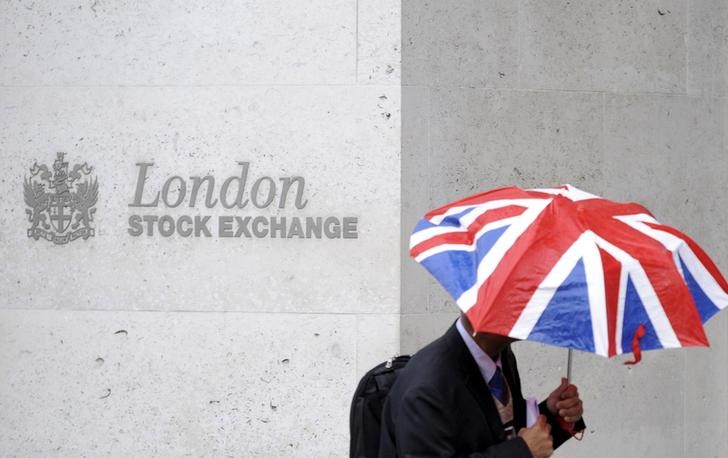By Atul Prakash
LONDON (Reuters) - Global equities climbed on Friday, while the dollar retreated against major currencies as a pullback in U.S. bond yields prompted some investors to take profits after the currency's best run in almost two years.
The MSCI world equity index, which tracks shares in 46 countries, was up 0.2 percent in early European trading and headed to close the week around 1 percent higher. In Asia, MSCI's broadest index of Asia-Pacific shares outside Japan added 0.7 percent.
European equities were steady in morning business, with a rally in defensive sectors such as healthcare and utilities offsetting weaker banking and commodities stocks. The pan-European STOXX 600 index fell 0.05 percent, but remained on track for a third straight week of gains.
European shares have gained 4.5 percent since Donald Trump's surprise victory in this month's U.S. presidential election.
"It looks as if the market is taking a breather after a good run. The market view is that Trump is going to spend more and will shield the U.S. more so that we get higher inflation and higher domestic growth," Ronny Claeys, senior strategist at KBC Asset Management, said.
"The market has reacted positively on Trump, but this could change as his policies are vague at this stage. Investors will react more on his policy details."
European energy stocks fell 0.5 percent after crude oil prices slipped around 1 percent on rising Saudi supplies to Asian clients and a fall in Chinese imports.
A Saudi-led plan to agree on crude output cuts from the Organization of the Petroleum Exporting Countries (OPEC) and other producers next week would only impact supplies from February 2017 as most exporters sell their supplies two months ahead.
On the currency front, the euro rose half a percent to $1.0605 after weakening as far as $1.0518 on Thursday, its lowest point since March 2015.
Expectations of rises in U.S. inflation and interest rates have driven the greenback to a gain of more than 6 percent in October and November combined, its strongest performance over a similar period since its rally in early 2015. Most investors expect those gains to continue, but a combination of the Thanksgiving break in the United States, market participants' need to process corporate flows at the end of the month and a raft of risks in the first half of December all speak for cashing in some of those gains now.
"U.S. yields gapped higher at open but we have been unable to hold those gains and that has encouraged some profit-taking," said Jeremy Stretch, head of currency strategy at CIBC in London. "There is a degree of consolidation (but) there is still a consistent bias that means the dollar will remain pretty much supported into the Fed meeting next month. The message seems to be to take some profit and we will be looking to go again."
In the European bond market, short-dated German government bond yields set a new record low and were on track for their biggest two-week fall in more than three years, highlighting demand for top-rated assets.

Demand for German debt for use as collateral for short-term lending in repo markets has helped drive two-year bond yields lower this week. Jitters ahead of an Italian referendum on Dec. 4 has also bolstered demand for German bonds, regarded as among the safest assets in the world.